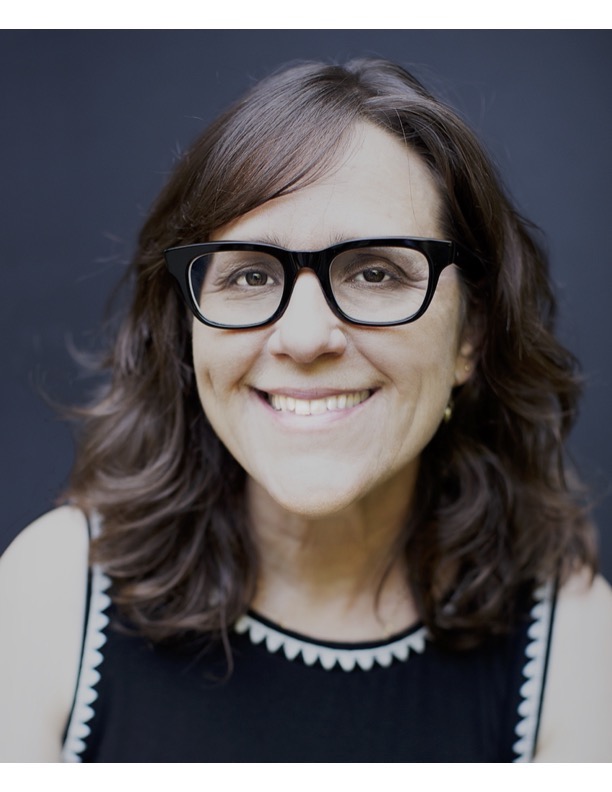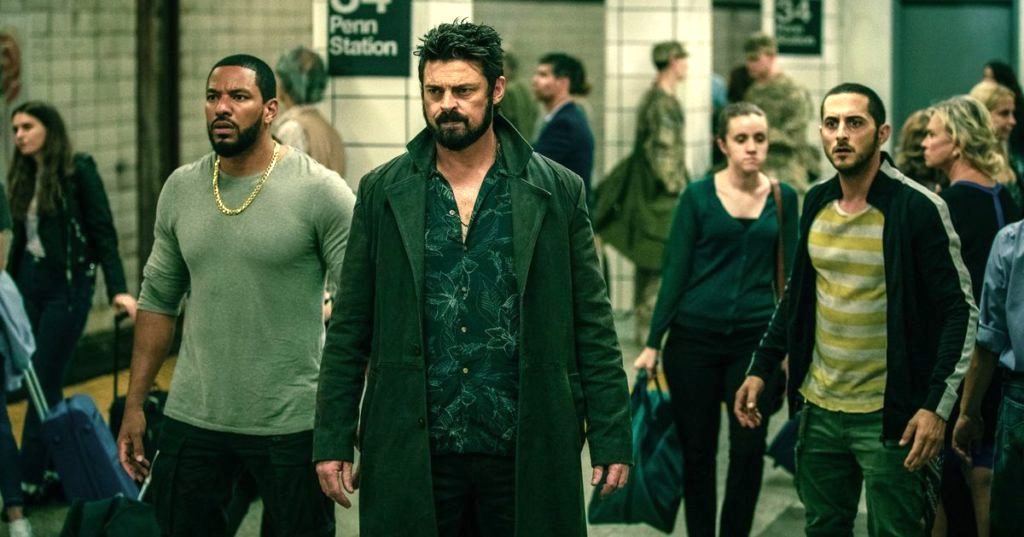Versatile TV writer Rebecca Sonnenshine is known for her work on The Outcast, The Crossing and The Vampire Diaries. More recently, she garnered an Emmy nomination for writing the final episode of The Boys called “What I Know.” Sonnenshine won the Nicholl Fellowship in 1999, but her path to success was not assured. At the time she thought she’d made it, but couldn’t get her foot in the door for quite some time after that. It was only after the second season of The Vampire Diaries that she truly felt like a working writer. Rebecca spoke to Creative Screenwriting Magazine to discuss her work on The Boys.
Rebecca confessed to not being overly familiar with the comic book series by Garth Ennis about a group of vigilantes trying to take down a group of corrupt superheroes. “I read the pilot for the TV series first.” After that, she met with the show’s creator, Eric Kripke to discuss his vision for the TV series. After landing a writing spot on the show, she binge-read the entire comic series to familiarize herself with the characters and their world.
The Boys is a densely thematic show examining many contemporary issues
“The Boys has lot to say about the way we worship celebrities and the way our government is very intertwined with corporations,” she explained. “It’s about unfettered, unregulated capitalism and putting blind trust in corporations and false heroes.” Timely themes indeed.

Rebecca Sonnenshine
The Boys isn’t a traditional good guys vs bad buys show although The Boys (vigilantes) lean into the former and The Seven (superheroes) into the latter. Both the heroes and vigilantes taking them down are extremely flawed to the point of corruption, but still very human. Sonnenshine sees heroes and villains as two sides of the same coin, so the negative traits of one are reflected in the other.
The show focuses on how much power corporations wield today that can make them dangerous. “Our own government has too much faith in corporations and given them a lot of leeway to the point they can do whatever they want.”
The idea of running a country like a corporation has its economic appeal, but it doesn’t account for its citizens being human. Corporations don’t focus on having a social conscience.
The “haves” keep everything and the “have-nots” are told to aspire to get it. But the system is stacked against them so that the haves accumulate more while the have-nots are left with nothing.
Why Audiences Love Superheroes
Stories with superheroes are based on the mythology that they are selfless who put others above themselves. They personify pure good and morality. However, it isn’t realistic.
“That level of altruism isn’t human nature. It’s a false promise that humans are so pure.” The Boys twists this myth by seeing what happens when superheroes are given too much power, adoration and money. Even superheroes are humans – they have temptations and weaknesses. They break. “They explore what people do who have so much.”
Much of the justice in The Boys is performative. “They have to schedule criminal busts for show.” It’s well-rehearsed for the camera. The more difficult restorative justice is a difficult ideal to uphold to make things whole once again, to compensate for loss. True justice is more nuanced and far-reaching.
A key aspect of The Boys is its psychological exploration of why people do the things they do. It’s not as dichotomous as heroes and villains. Everybody has elements of both, but tilt more one way than the other. “The show resists an easy categorization since everyone is morally compromised to some degree.” Their bad behavior stems from some past pain. “It’s a more honest way of looking at the world. Therein lies the struggle and hope,” continued the screenwriter.
“The thrust of the Boys is about understanding other people so you can better understand yourself.” Despite the low likelihood of complete redemption or salvation, there is a modicum of good in both The Seven (superheroes) and The Boys (vigilantes) who eventually end up in a slightly more righteous place.

Billy Butcher (Karl Urban) in The Boys. Courtesy of Amazon Studios
The Boys delicately balances its comic book origins with its nuanced drama to make its point. The show always starts from a place of character rather than cartoonish effects. The show’s universe and the superhero powers are directly sourced from the comic books while the TV writers ground them in character. The fantastical plot elements like compound V elevate the characters. “The balance is struck by grounding these fantastical elements so they feel real and meaningful.”
Comedy plays a distinct role in The Boys. It too is nuanced and curious. The comedy is never a gag. The writers don’t pitch jokes for laughs. “Sometimes the comedy comes out of the absurdity of the situation,” mused Sonnenshine.
The characters in the cast are very specific – specific quirks, powers and backstories. All these factors can be mined for storylines. Keeping track of so many characters in the TV writers’ room is a formidable task. The writing team maintains charts and lists of each character arc per season. “You build a map for each character’s emotional arc.”
Eric Kripke is the showrunner of The Boys. His guidance ensures each character is distinct by giving them very small, personal stories about themselves. “They are known as Kripke stories in the TV writers’ room.”
The Boys also explores forgiveness. Rebecca Sonnenshine quoted the storyline of Annie January (Erin Moriarty) rescuing Hughie Campbell (Jack Quaid) even after he betrayed her in the first season. The second season was more interested in exploiting women and seeing them teaming up against the villain. The writer also relished the Billy Butcher (Karl Urban) and Becca Butcher (Shantel VanSanten) tragic love story.
The writer said that the exploration of loss and grief is evident in the majority of her work and the family dynamics that come out of these events. “Everyone has this little hole in their life which create flaws. Little flaws and traumas make characters interesting and relatable.“
